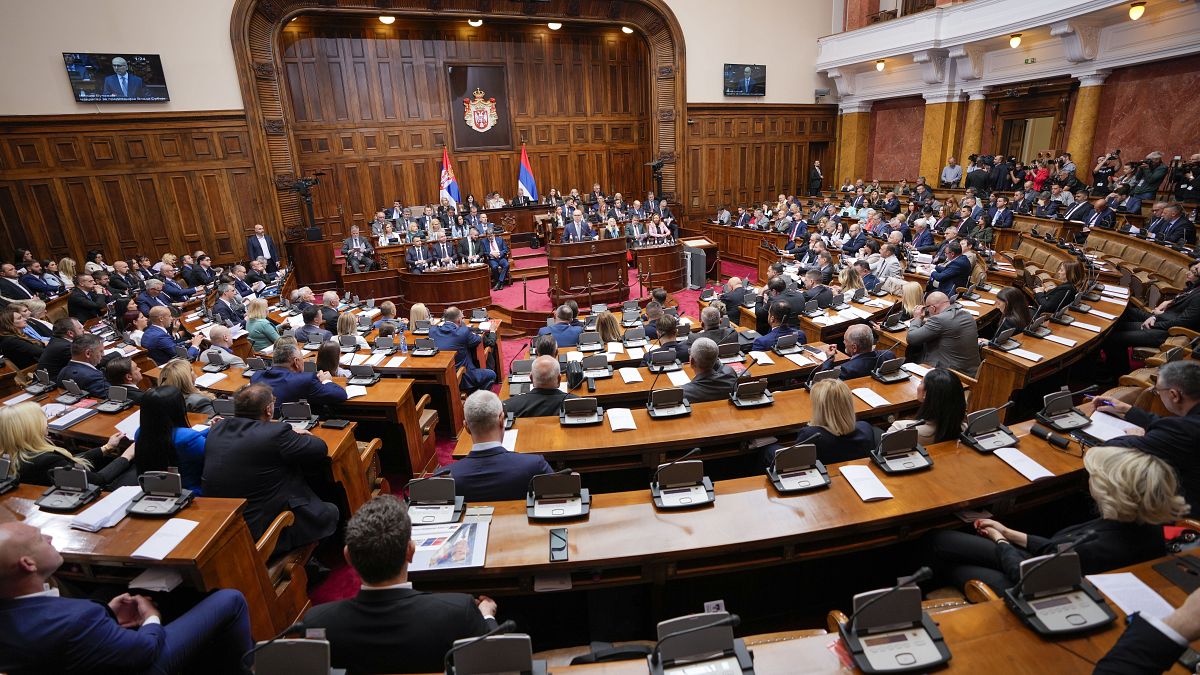The Movement of Socialists party in Serbia has proposed a new bill that aims to restrict the activities of foreign non-governmental organizations operating in the country. The party, which currently has only two MPs in the National Assembly, believes that foreign-funded NGOs are propagating messages that are against the interests of Serbia. The proposed law closely resembles the controversial law on foreign agents that is expected to be implemented in Georgia. The party’s leaders argue that activities funded by foreign donations are a threat to the Republic of Serbia and are aimed at promoting agendas such as Kosovo’s independence.
The issues of Kosovo’s independence, the genocide in Srebrenica, and the destruction of Republika Srpska have been prominent talking points for nationalist politicians in Serbia since the disintegration of Yugoslavia and the wars in the region in the 1990s. The Movement of Socialists is using these issues as justification for their proposed anti-foreign NGO law. While the party’s leaders believe that restricting the activities of foreign-funded organizations is necessary to protect Serbia’s interests, civil society actors and independent media outlets see the move as an attempt to intimidate and control dissenting voices.
Despite the Movement of Socialists’ efforts to push forward with the anti-foreign NGO law, it is unclear whether they will garner enough support to pass the draft legislation. Civil society organizations, such as the Youth Initiative for Human Rights, are concerned about the potential impact of the proposed law on Serbian society’s future. They see the law as a means of limiting freedom of expression and impeding the advocacy of democratic principles in the country. The announcement of the proposed law has raised questions about the state of democracy and freedom of speech in Serbia.
In the midst of these developments, Serbia is gearing up for a rerun of last year’s local elections in June. The country, which is a candidate for EU membership, has faced criticism from the EU for not conducting free and fair elections, with allegations of voter fraud. The Movement of Socialists’ proposed anti-foreign NGO law adds another layer of concern about the state of democracy and human rights in Serbia. The party’s nationalist stance, coupled with its efforts to restrict the activities of foreign-funded organizations, raises questions about the direction in which the country is headed and the potential impact on its relationship with the EU.
The Movement of Socialists’ push for the anti-foreign NGO law could bring about greater attention to the party, which has a small presence in the National Assembly. The party’s nationalist rhetoric and stance on foreign-funded organizations align with the sentiments of many in Serbia who are wary of foreign influence and sympathetic to nationalist causes. However, the proposed law has also sparked concerns among civil society actors and independent media outlets about the erosion of democratic values and freedoms in the country. As Serbia navigates its political landscape and prepares for upcoming elections, the debate around the anti-foreign NGO law highlights the tensions between nationalist sentiments and democratic principles in the country.
In conclusion, the Movement of Socialists’ proposed anti-foreign NGO law in Serbia has stirred controversy and raised questions about the state of democracy, freedom of speech, and human rights in the country. The party’s nationalist stance and efforts to restrict the activities of foreign-funded organizations have sparked concerns among civil society actors and independent media outlets. As Serbia prepares for upcoming elections and faces criticism from the EU over the state of its democracy, the debate around the proposed law highlights the challenges and tensions between nationalist sentiments and democratic principles in the country. It remains to be seen whether the Movement of Socialists will gather enough support to pass the draft legislation and what impact it will have on Serbian society’s future.











